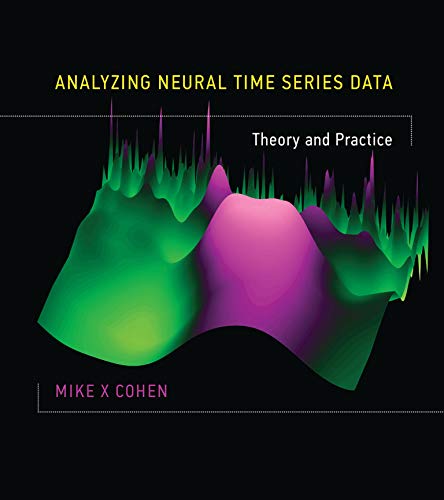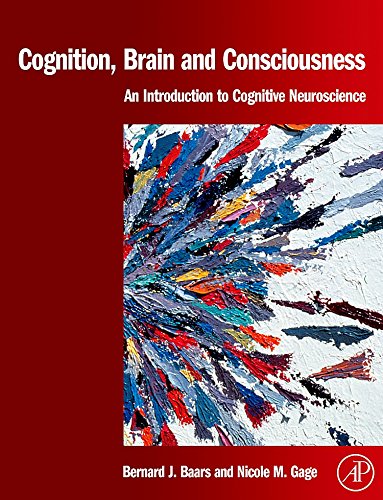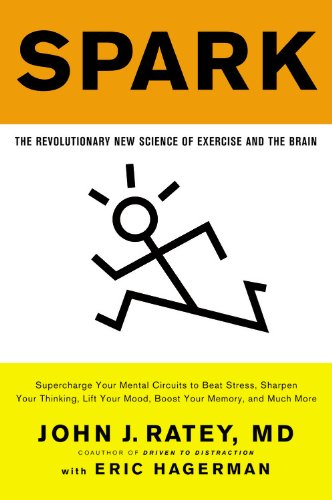(Part 2) Top products from r/Neuropsychology
We found 20 product mentions on r/Neuropsychology. We ranked the 66 resulting products by number of redditors who mentioned them. Here are the products ranked 21-40. You can also go back to the previous section.
21. Do One Thing Different: Ten Simple Ways to Change Your Life
Sentiment score: 1
Number of reviews: 1
Used Book in Good Condition
 Show Reddit reviews
Show Reddit reviews22. Insider's Guide to Graduate Programs in Clinical and Counseling Psychology: 2018/2019 Edition (Insider's Guide to Graduate Programs in Clinical and Psychology)
Sentiment score: 0
Number of reviews: 1
 Show Reddit reviews
Show Reddit reviews23. Analyzing Neural Time Series Data: Theory and Practice (The MIT Press)
Sentiment score: 0
Number of reviews: 1
MIT Press (MA)
 Show Reddit reviews
Show Reddit reviews24. The Explosive Child: A New Approach for Understanding and Parenting Easily Frustrated, Chronically Inflexible Children
Sentiment score: 0
Number of reviews: 1
 Show Reddit reviews
Show Reddit reviews25. Sapiens: A Brief History of Humankind
Sentiment score: 1
Number of reviews: 1
New York Times Bestseller now available as a beautifully packaged paperbackA Summer Reading Pick for President Barack Obama, Bill Gates, and Mark ZuckerbergFrom a renowned historian comes a groundbreaking narrative of humanity’s creation and evolution—a #1 international bestseller—that explore...
 Show Reddit reviews
Show Reddit reviews27. Cognition, Brain, and Consciousness: Introduction to Cognitive Neuroscience
Sentiment score: 1
Number of reviews: 1
 Show Reddit reviews
Show Reddit reviews28. Descartes' Error: Emotion, Reason, and the Human Brain
Sentiment score: 0
Number of reviews: 1
 Show Reddit reviews
Show Reddit reviews29. The Feeling of What Happens: Body and Emotion in the Making of Consciousness
Sentiment score: 0
Number of reviews: 1
5x10 inches, 385 pages Trade paperrback in colors of gold, orange, green and black.
 Show Reddit reviews
Show Reddit reviews30. A Compendium of Neuropsychological Tests: Administration, Norms, and Commentary
Sentiment score: 0
Number of reviews: 1
Used Book in Good Condition
 Show Reddit reviews
Show Reddit reviews31. Mild Traumatic Brain Injury and Postconcussion Syndrome: The New Evidence Base for Diagnosis and Treatment (AACN Workshop Series)
Sentiment score: 1
Number of reviews: 1
 Show Reddit reviews
Show Reddit reviews32. Darwin's Cathedral: Evolution, Religion, and the Nature of Society
Sentiment score: -1
Number of reviews: 1
 Show Reddit reviews
Show Reddit reviews33. The Truth About the Drug Companies: How They Deceive Us and What to Do About It
Sentiment score: 1
Number of reviews: 1
Random House Trade
 Show Reddit reviews
Show Reddit reviews34. Sweet Anticipation: Music and the Psychology of Expectation (A Bradford Book)
Sentiment score: 1
Number of reviews: 1
MIT Press (MA)
 Show Reddit reviews
Show Reddit reviews35. The Story of the Human Body: Evolution, Health, and Disease
Sentiment score: 1
Number of reviews: 1
Vintage Books
 Show Reddit reviews
Show Reddit reviews37. Hallucinations
Sentiment score: 0
Number of reviews: 1
what neuroscience tells us about hallucinations per Oliver Sacks
 Show Reddit reviews
Show Reddit reviews




NLP doesn't get much play in neuropsych or academic psych circles, for the reason Burnage cited below. The problem is that NLP mixes things that are demonstrably true and probably of lots of value, with things that are demonstrably false and therefore of limited value, and a bunch of things that no one has really studied because they don't make much sense according to how we know the brain works. For example, the eye movement chart... sure, in general, if you are right handed and your brain is lateralized like most right-handers, your eyes move to your right if you are trying to recall something and to your left if you are trying to create/visualize something. But, not always. And not in any way that's particularly helpful - for example, most of the time you are trying to remember stuff WHILE thinking up other stuff.
Also, although it intuitively makes sense, people don't really have "learning preferences" like being a visual, kinesthetic, or auditory learner or being "right brained" or "left brained" - the brain just isn't designed like that, which we can discuss more at another time if it's of interest.
But as for your question about Milton Erickson... probably not so much in NP circles, but he has been incredibly influential in some areas of psychology. Erickson was one of those therapists who seemed to work really well with some patients just by being who he is, and then people came along and tried to create a school of therapy that is Erickson's personality codified (see also: Ellis, Albert and Linehan, Marsha, who created their own therapies based largely on their personalities). Psychologists have had varying degrees of success with recreating Erickson, but if you are interested in how people are applying Erickson these days, I would highly recommend the works of Bill O'Hanlan, who is a solution-oriented therapist, an Erickson devotee, and a lovely writer.
Yes, I am most definitely down with that.
I'm also not sure how books would be discussed either. I usually have a hard time critiquing neuropsychology-type books since I am not really qualified to determine whether the results are based on sound methodology.
Perhaps if it was like a seminar, where we all pick a book to read, and start an open thread where people can post opinions and questions and we can all try to answer them or post relevant hard science (or other) related articles.
I'm not sure about the logistics, but maybe post an announcement for the book, then give people 2 weeks or whatever to read it, then start another thread for discussion? (Or, even better...write the current book-club selection in the side-bar)...and put a common title on all discussion threads so they are easily searchable.
Here are my suggestions for books (suggested mostly because I own them already):
How We Decide - Jonah Lehrer
The Talent Code - Daniel Coyle
Outliers - Malcolm Gladwell (not really neuropsych, but has some neuropsychy ideas)
Why Don't Students Like School - Daniel Willingham (you convinced me to buy this book a couple weeks ago, and I'd love to discuss it more. I might write a review over at the subreddit I moderate [/shameless plug]).
EDIT: Maybe you could cross-post it as a "course" at the University of Reddit for more exposure? "Introduction to Popular Psychology" or something...
/r/musiccognition welcomes you, friend. Also I'd suggest this book on music emotions topic David Huron - Sweet Anticipation. Music and the Psychology of Expectation.
A general literature review is a good place to start. Keep your eye out for meta-analyses in particular. TBI in general (and especially mTBI) is such a hot button topic it should be easy to come up with information about mTBI and cognition in civilians. If you want to extend this to include Veteran's, I'd recommend including terms such as "blast injury" in your search terms. google scholar is a great general resource if your university databases are not panning out easily. If you can find articles but can't access them due to paywalls, there are ways to get around those that I won't mention here as they are illegal (but easy enough to find if you do a google search).
​
Putting aside the research articles, Michael McCrea put out an excellent book addressing the current state of the field regarding mTBI, PCS, and treatment recommendations.
​
If you are looking for Veteran specific recommendations, that may be a little tricky. Some VA's have more treatment options/better treatment programs than others, and some list these resources on their websites. Peruse some VA's located in larger cities (Boston, San Francisco, LA/San Diego, etc.) and look over their websites for possible options. Some of the Veteran's advocacy groups may also have resources.
> Here's the thing about science. It's really hard. And almost all of it is definitely not perfect. But it's arguably the best current method we have ...
Here's the thing about freethinking: it's even harder, because you can never narrow your scope or limit your mind.
"It is simply no longer possible to believe much of the clinical research that is published, or to rely on the judgment of trusted physicians or authoritative medical guidelines. I take no pleasure in this conclusion, which I reached slowly and reluctantly over my two decades as an editor of The New England Journal of Medicine"
Marcia Angell, “Drug companies & doctors: a story of corruption," NY Review of Books, 56 #1, 15 Jan
https://www.amazon.com/The-Truth-About-Drug-Companies/dp/0375760946/ref=sr_1_1?ie=UTF8&qid=1400820070&sr=8-1&keywords=drug+companies+corruption
There are two great books that talk about exactly this.
Eric Kandel's Principles of Neural Science would be a great starting point.
I enjoyed this text:
http://www.amazon.com/Cognition-Brain-Consciousness-Introduction-Neuroscience/dp/0123736773
I would recommend this great book http://www.amazon.com/Hallucinations-Oliver-Sacks/dp/0307957241
It should alleviate your worries about whether what's going on is something exceptionally unusual. Particularly there are a couple chapters in there devoted to various hallucinations around sleep. You'll find that these things, while not common, are not entirely uncommon either
Might be more than you need, but if the places to which you're applying really expect you to be on top of neuropsych tests, check out the [Compendium] (http://www.amazon.com/Compendium-Neuropsychological-Tests-Administration-Commentary/dp/0195159578).
The lab I am working in uses ERPs for studying language development. One noteworthy ERP is the N400 in language or semantics.
Given a control stimulus of language that is typical, i.e. shown the sentence "The dog barks", the ERP for that stimulus over the left temporal lobe is expected to be unremarkable. If you throw in an unexpected element to the sentence, i.e. "The dog quacks", you can see an increase in negative potential around 400 ms after the stimulus. The N400 is canonically associated with the participant processing unexpected stimulus.
A good book to read on ERPs and other kinds of EEG work is Analyzing Neural Time Series Data. The author goes into ERPs and Time Frequency Analysis for EEG data. The book is also very approachable from multiple disciplines or levels of understanding.
You might want to read more deeply into the notion that reason and emotion are "easily separated." See, e.g,
Robert Burton (neuroscientist), On Being Certain (see also this for a short intro to Burton's book)
Antonio Damasio (neuroscientist), Descartes’ Error: Emotion, Reason and the Human Brain and The Feeling of What Happens
I'd also suggest buying Insider's Guide to Graduate Programs in Clinical and Counseling Psychology: 2018/2019 Edition.
First - don't promote your website here, mysticpolitics, especially after copying an article from another site (obviously you want hits - fuck you). At least change your screen name for practical purposes. And this isn't a mystical matter, nor politics.
Next:
For someone with so much experience in the field, I am surprised by Nigel Barber's lack of understanding of this subject. Then again, the article is such a cursory run at addressing this issue, and provides nothing new, or well-informed, to a point that I think he just shot out a shit article for the sake of vomiting his thoughts somewhere. Adaptionist theories of religious cognition, as opposed to theories of its being a by-product (exaptation), have bore little evidence in both anthropological and psychological literature. Furthermore, this God spot has not been observed to have any natural onset of its function other than that identified via artificial stimulation. Even then, something having such a relevant function doesn't mean it was selected for; Was susceptibility to psychoactives selected for? Was the ability to play the chocking game selected for due to the nature of some people's dreams? How about sleep paralysis? It is just as likely that systems built to process other minds are inadvertently activated by other processes, as they take such a primary role in our thought.
Can we also remember that for something to be selected, alternative genetic structures must die off or fail to reproduce. Also, mutations aren't robust, they don't overnight become autonomous modules like this 'God spot'. So, you're saying people who didn't have slight variation in their ability to randomly have spiritual insight either (a) died off from threatening causes, or (b) were not attractive to mates? Are you fucking kidding me? You study evolutionary psychology, man, come on. Read some damn evolutionary biology for a change.
—Regardless of arguments though, I just want to point out that this is a shit article, I looked at the rest of his work - solid stuff. Don't put this crap out there, don't make such huge claims before reading background literature, especially if you're in the field.
Now, some fun resources for everyone to go be happy and read about what I'd call the most exciting corner of research outside of empathy! Goodies for everyone (buy the first three books, they'll change your lives):
Religion Explained (exaptation/by-product cognitive view)
Why Would Anyone Believe in God? (more concise cognitive view, very accessible to the non-psychologist, very short)
Darwin's Cathedral (Adaptionist, group selection view)
Adaptations, Exaptations, & Spandrels